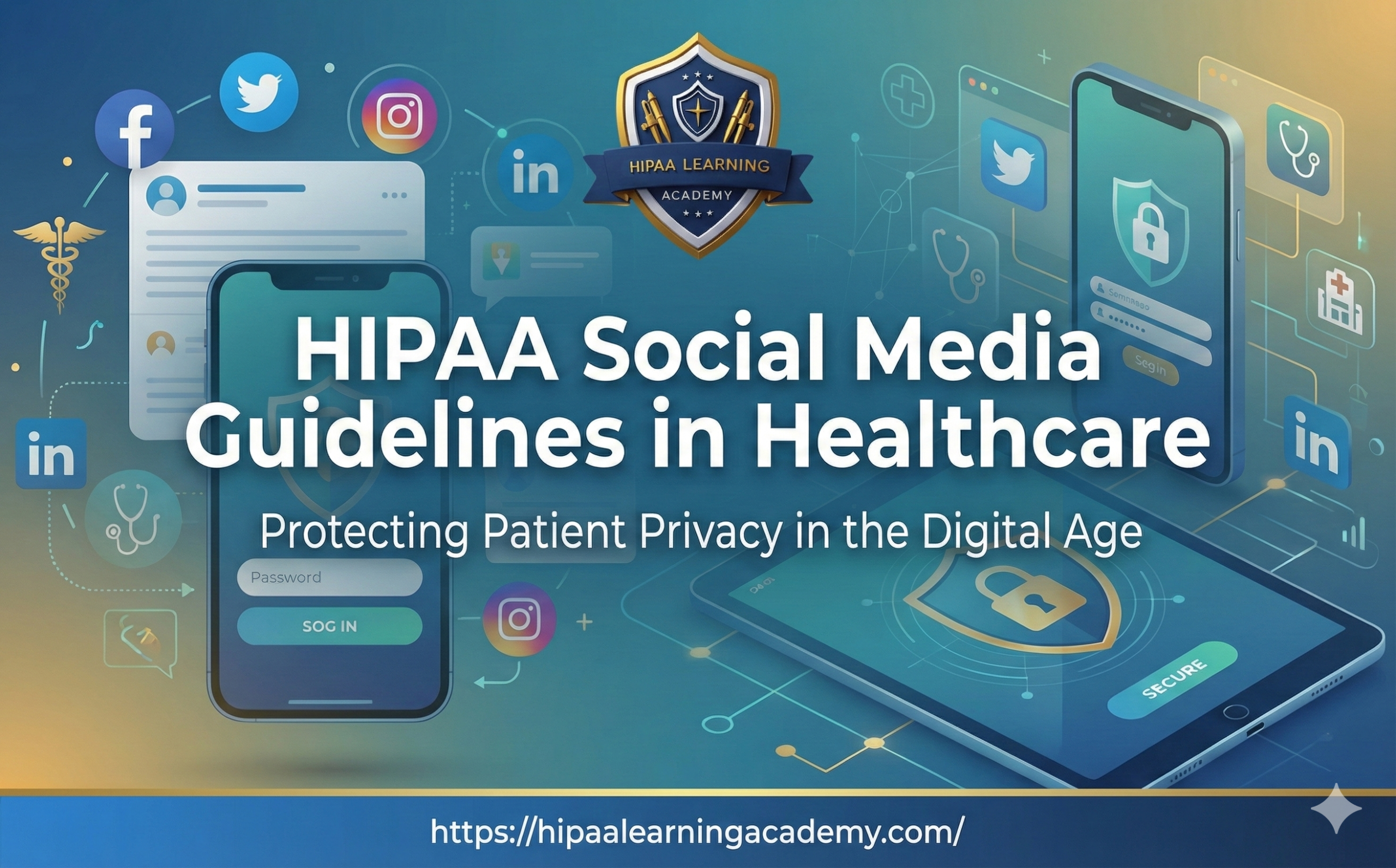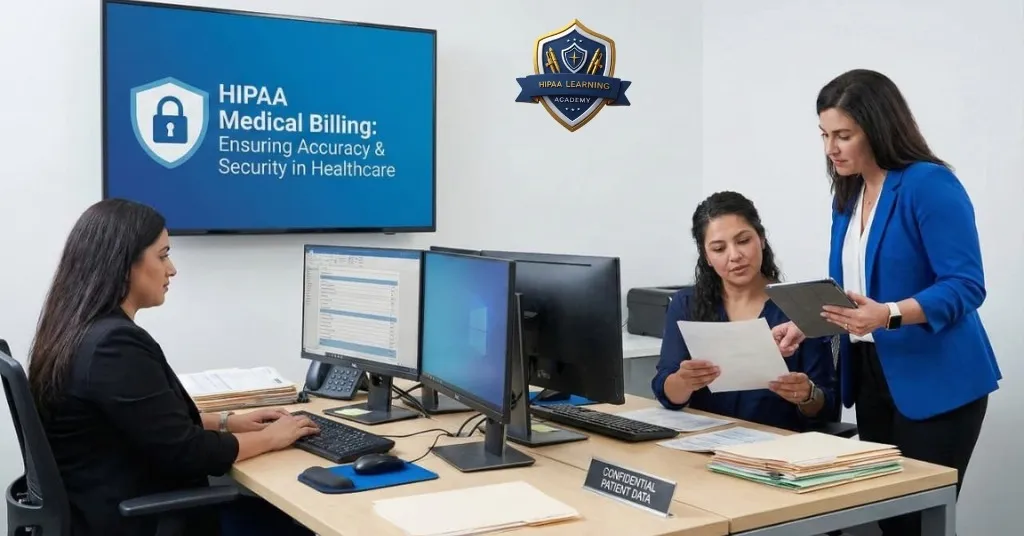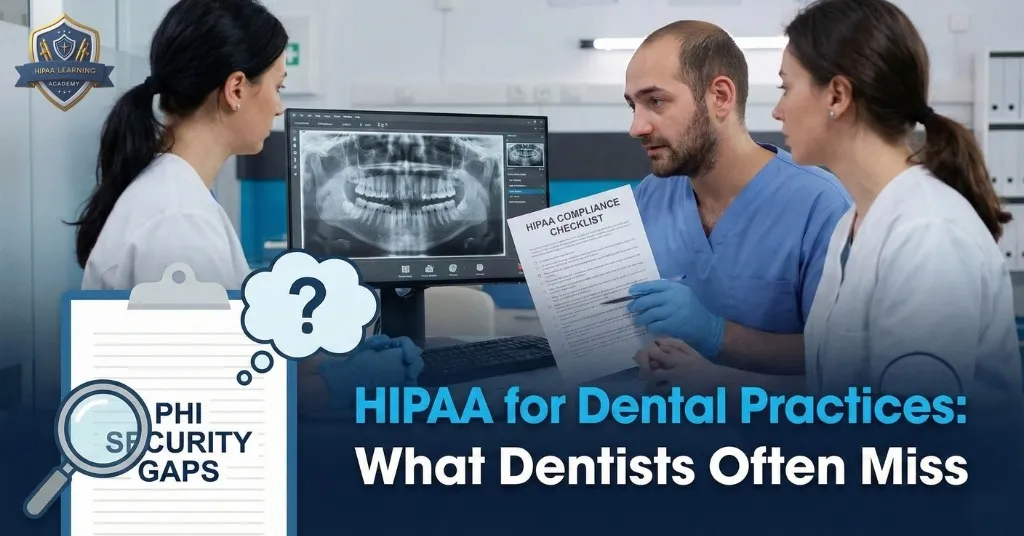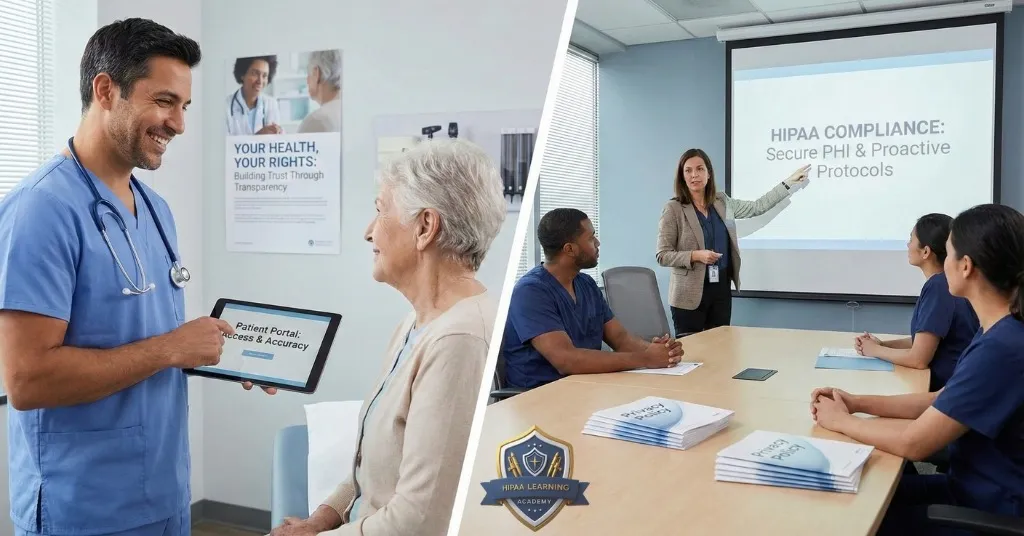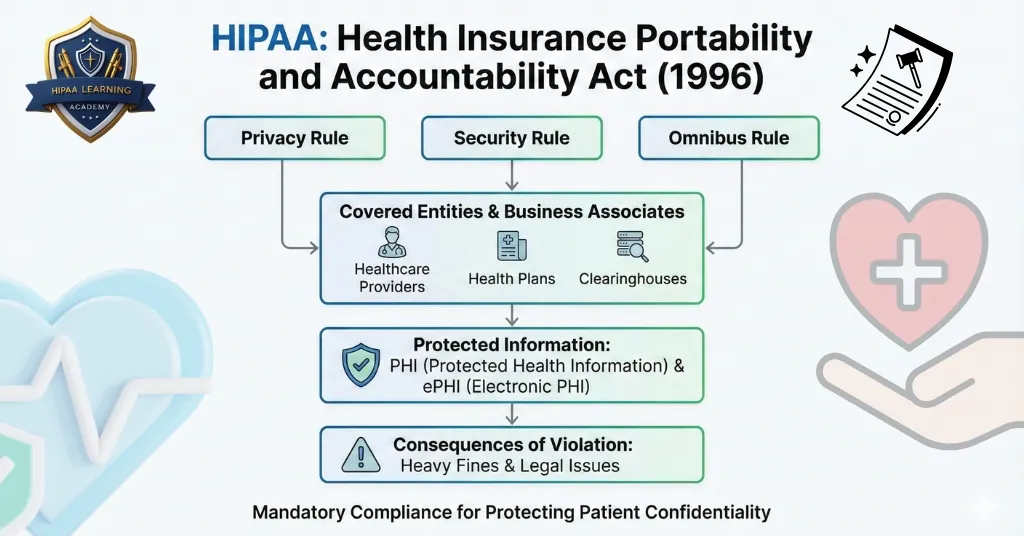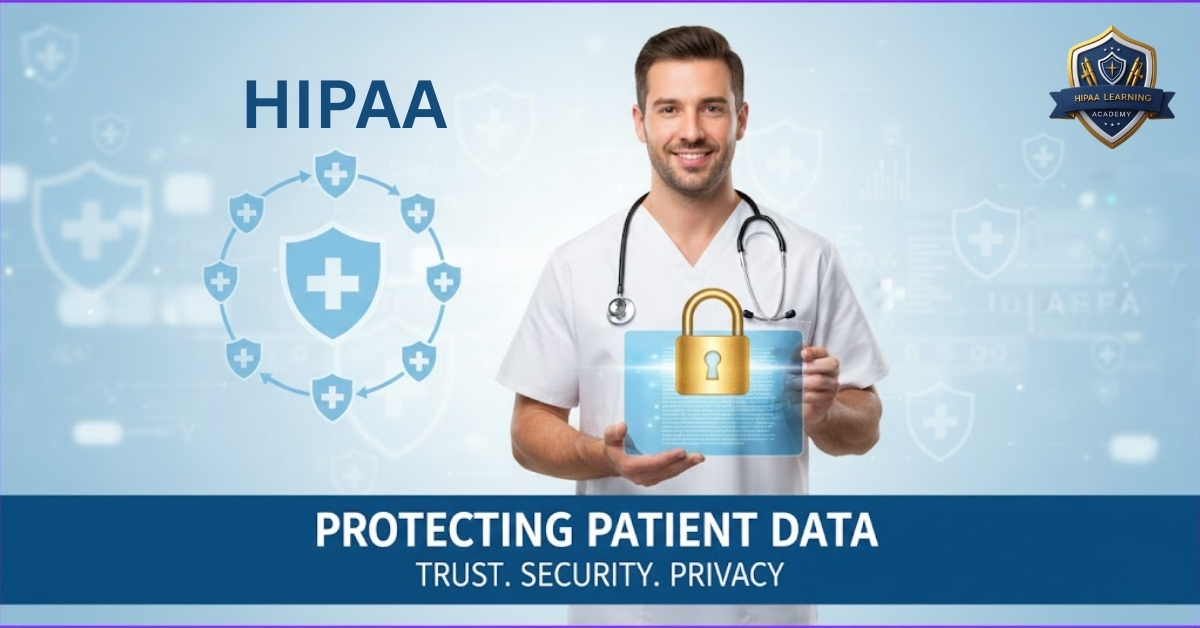Introduction
As a freelancer, you likely relish the ability to select your clients, control your schedule, and work from anywhere. Freedom is one of the greatest draws of freelance life. But freedom is a two-edged sword. If your work includes any aspect of healthcare information, including medical billing, transcription, telehealth support, or even marketing for healthcare providers, you might also have an accompanying legal and moral obligation: HIPAA compliance. This raises an important question: Do Freelancers need HIPAA Training to stay compliant and protect sensitive data?
The Health Insurance Portability and Accountability Act (HIPAA) is commonly considered a regulation that applies to hospitals, clinics, and insurance firms. However, few know that HIPAA can reach far beyond the conventional healthcare environments. HIPAA also covers independent contractors and freelancers who, as part of their work, may work with Protected Health Information (PHI). Understanding this is key to answering the question: Do Freelancers need HIPAA Training before handling PHI.
In this guide, we’ll discuss when HIPAA training is legally mandatory for freelancers, what contractual terms might apply to you, the consequences of not complying, and how you can safeguard yourself while working in the healthcare industry in 2025.
What Is HIPAA and Why Should Freelancers Care?
HIPAA, enacted in 1996, established national standards for the protection of Protected Health Information (PHI). PHI is any information which can be used to identify a patient and pertains to their condition, treatment, or payment for treatment.
As a freelancer, if your freelance work entails even incidental access to PHI, you are most probably defined as a business associate under HIPAA legislation. Business associates are under the same level of responsibility as healthcare providers (also referred to as covered entities). You are therefore legally bound to protect confidential patient information in an identical manner that hospitals or clinics are.
Examples of Freelance Work Under HIPAA
Freelancers tend to underestimate the ease with which their work can include PHI. Examples include:
- An insurance claims biller for a clinic works with patient and financial information.
- A transcriptionist working with doctor-patient notes comes into contact with health history.
- A virtual assistant making appointments and sending emails to patients comes into contact with patient identifiers.
- A freelance marketer developing campaigns using case studies might include patient-sensitive information.
- A software developer creating apps or utilities for clinics typically stores or processes PHI.
If any of these fit your work, you might be under HIPAA regulations and will probably require formal HIPAA training in order to keep working safely and legally.
When Is HIPAA Training Necessary for Freelancers?

Not all freelancers must have HIPAA training, but there are certain situations where it is necessary, either by law or through contractual arrangements with clients.
-
Legal Requirement
Under HIPAA’s Administrative Requirements, every employee of a covered entity or business associate, including contractors, must undergo HIPAA training. This training shall:
- Be applicable to their job so you understand precisely how HIPAA impacts your work.
- Be made available within a reasonable period from the time you begin employment.
- Be revamped on a regular basis when new policies, security risks, or laws are introduced.
Thus, when you sign a contract with a business partner or healthcare provider and you will be working with PHI, HIPAA training is not something that can be avoided — it is mandatory under the law.
-
Contractual Obligation
Even though HIPAA does not make training mandatory in your situation in terms of the law, several healthcare organizations do include HIPAA training provisions in contracts with independent contractors. This way, all the parties involved are at the same level when ensuring patient privacy.
An everyday example is the Business Associate Agreement (BAA), which is a legal agreement that describes your HIPAA responsibilities. Nearly every BAA you enter into will call for evidence that you have participated in HIPAA training. Without it, you’ll lose opportunities.
Protected Health Information (PHI) Freelancers May Face

In order to see why HIPAA training is so vital, you must understand what constitutes PHI. In a freelance situation, PHI can manifest itself in various ways, including:
- Patient names and addresses on appointment records.
- Medical history in transcription files.
- Insurance claim information in billing systems.
- Lab results that have been shared for marketing purposes or educational purposes.
- Audio or video recordings of telehealth sessions.
Even something apparently small, such as an email address used for a medical appointment, is considered PHI. Mishandling this data, even by mistake, can generate severe compliance problems and result in penalties.
Consequences of Avoiding HIPAA Training
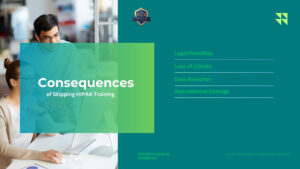
Most freelancers believe HIPAA training is not required unless they are directly dealing with medical records. But holding this belief can jeopardize your business. Neglecting HIPAA compliance has severe repercussions.
Possible Consequences Include:
-
Legal Penalties
- HIPAA breaches can result in fines between $100 and $50,000 for each violation, depending on the magnitude and negligence.
- In extreme cases, freelancers can even be charged criminally.
-
Loss of Clients
- Most healthcare organizations will not even interview freelancers if they do not have evidence of HIPAA training.
- Without it, you risk losing current clients or not gaining new ones.
-
Data Breaches
- Unless you are adequately trained, you may employ insecure email services, cloud applications, or storage tools, which result in patient data breaches.
-
Damage to Reputation
- A single HIPAA violation can irreparably damage your reputation.
- News travels fast in business circles, and you can find it challenging to find employment in the healthcare sector once more.
Key Components of HIPAA Training for Freelancers
A good HIPAA training course will do more than cover mere rules — it should leave you with the confidence to work with PHI.
The following are the key components of good HIPAA training:
Overview of HIPAA Rules
Understand the Privacy Rule, Security Rule, and Breach Notification Rule and how they pertain to your particular freelance role.
Recognizing PHI
Training should make you aware of PHI in any of its modes (written, verbal, or electronic) so you are always aware when HIPAA comes into play.
Security Practices
Discusses secure communication, encryption, password security, and data safe storage.
Incident Response
Educates you on what to do if you believe a data breach has occurred. Being aware of reporting instantly can reduce penalties and safeguard patients.
Role-Specific Guidance
For instance, a medical biller’s concern will be software compliance, and a transcriptionist’s concern will be secure file sharing.
How Freelancers Can Stay HIPAA-Compliant in 2025
HIPAA is not a single training session but developing good habits that ensure you and your client are secure. Here are real-life steps:
-
Get Certified
- Enroll in an accepted HIPAA training program, such as one from HIPAA Learning Academy. Certification not only documents compliance but also renders you more desirable to healthcare clients.
-
Utilize HIPAA-Compliant Applications
- Always select software acceptable under HIPAA requirements for email, cloud storage, and video conferencing. Confirm you have executed signed BAAs with providers.
-
Establish a Safe Working Environment
- Working from home? Lock your office space, use strong device passwords, and never leave PHI visible or unsecured.
-
Limit Data Access
- Only collect, store, or view PHI necessary for your specific tasks. Avoid unnecessary exposure to sensitive data.
-
Stay Updated
- HIPAA rules evolve. Take refresher courses annually and keep up with new cybersecurity threats.
Freelancer HIPAA Compliance Checklist
Here’s a practical checklist to guide your daily workflow:
- Completed HIPAA training within the last 12 months.
- Signed BAA with all healthcare clients.
- Utilizing HIPAA-compliant communication and storage tools.
- Safe home office and electronic precautions taken.
- Well-defined process for reporting security breaches.
- PHI never stored on personal devices unless encrypted.
💡 Tip: Print this checklist and leave it close to your workspace. It’s an easy way to prevent expensive errors.
Resources for Freelancers Looking for HIPAA Training
- U.S. Department of Health & Human Services: HIPAA Overview
- HIPAA Learning Academy’s HIPAA Compliance Training for Freelancers (Internal link suggestion: /courses/hipaa-for-freelancers)
- Cybersecurity and Infrastructure Security Agency (CISA): Security tips for remote workers
Conclusion
Freelancers who work with healthcare organizations can’t afford to overlook HIPAA compliance. Whether it’s mandated by law or included in your client agreement, HIPAA training safeguards your clients, your business, and your professional reputation.
By understanding the rules, using secure tools, and keeping your skills current, you’ll not only stay compliant but also stand out as a reliable and trusted freelancer in the competitive healthcare industry.
👉 If you’re ready to meet your HIPAA obligations and boost your client appeal, start your HIPAA training course today with HIPAA Learning Academy. For dental billing training and courses follow Guardian Dental Billing Trainings


